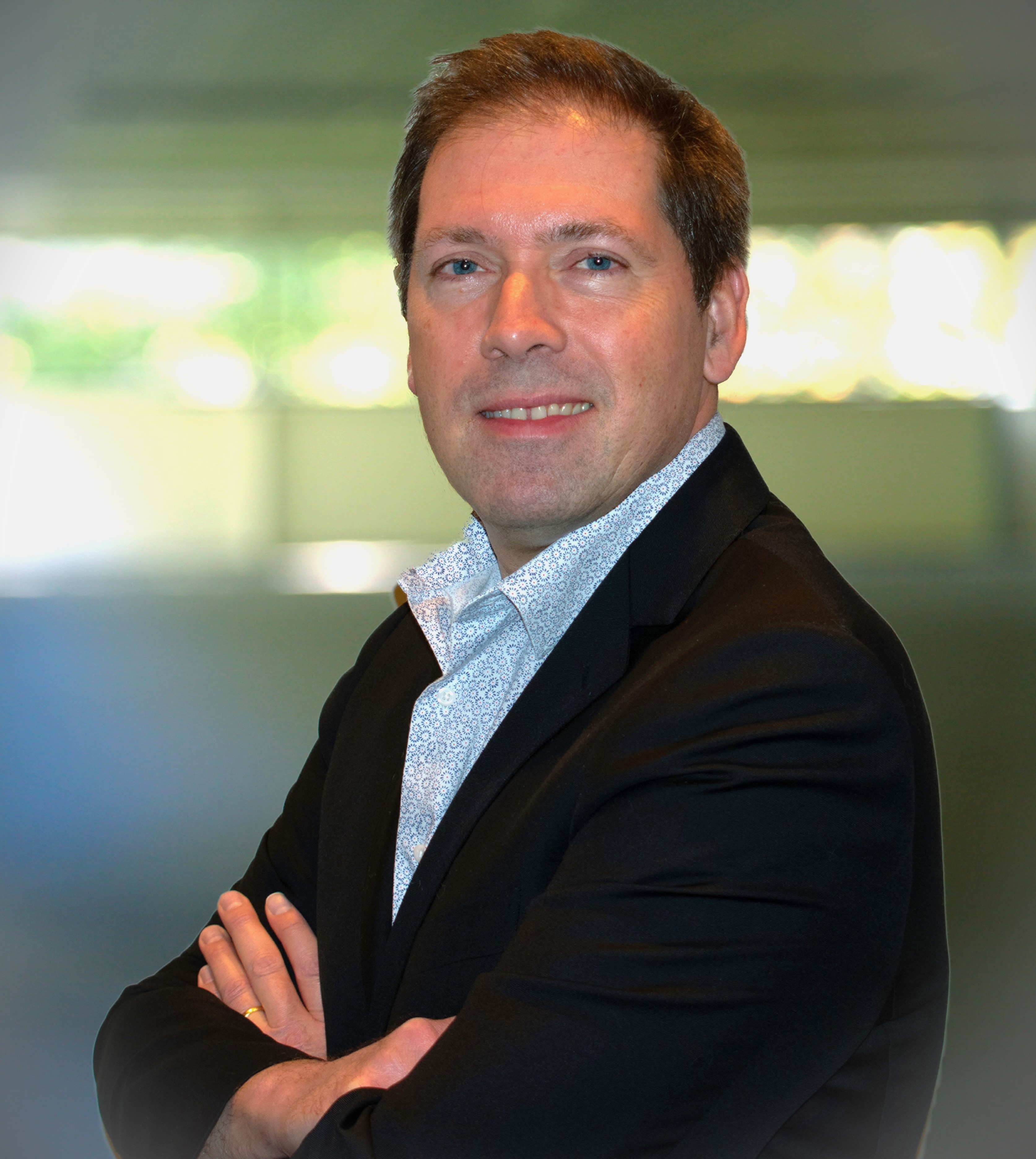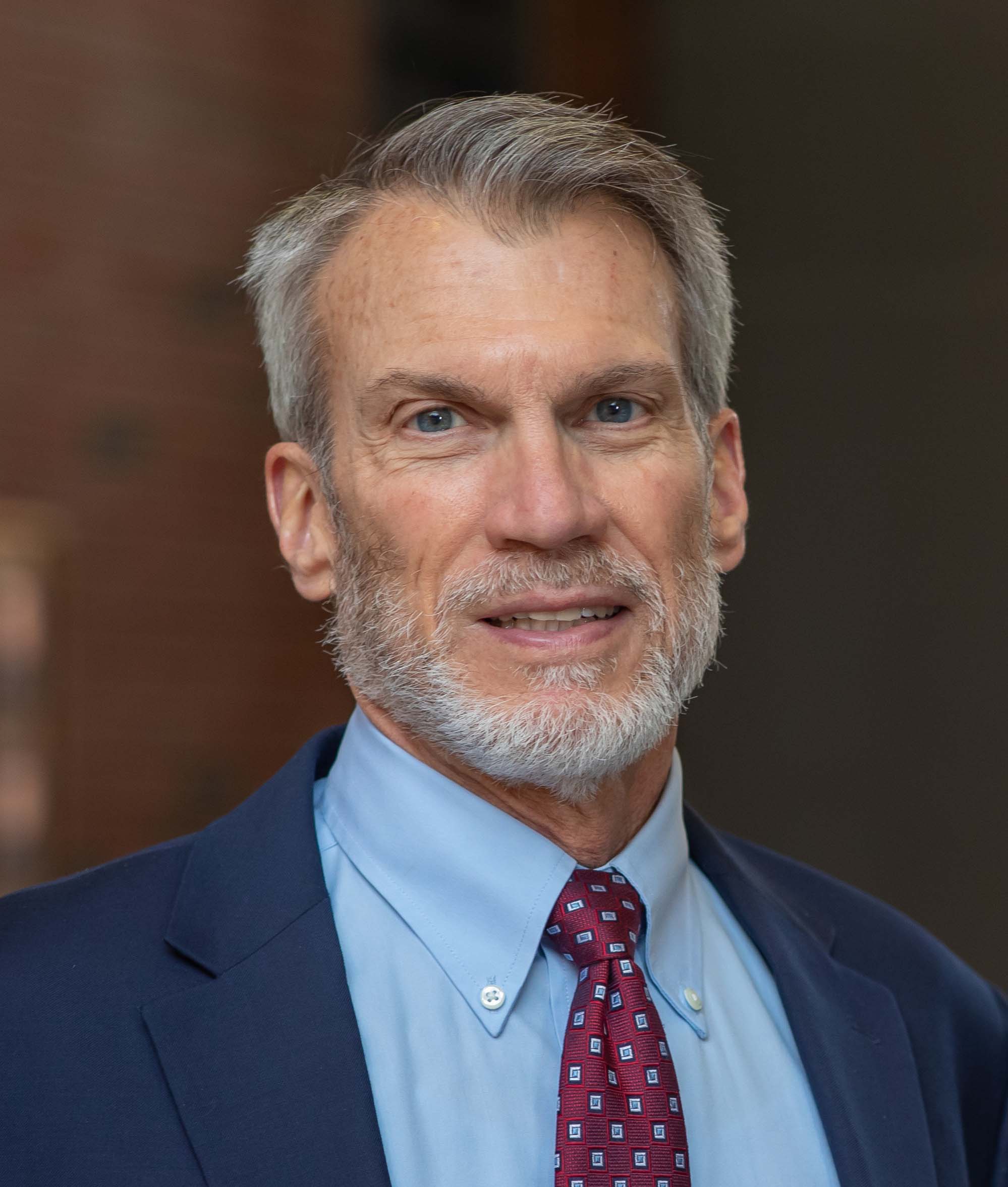Softwarized Networks in the Age of Generative AI
The IEEE International Conference on Network Softwarization (NetSoft) has a long-standing tradition of hosting a Distinguished Expert Panel (DEP) at the end of the three main conference days. The DEP offers the audience the possibility to hear the opinions and visions of renowned experts coming from academia, industry, and government agencies on the most relevant aspects of network softwarization, as well as to actively interact with them.
PANELISTS
- Alexander Keller (CTO Services and VP, Emerging Technologies at Dell Technologies)
- Sajal Das (Curators’ Distinguished Professor and Daniel St. Clair Endowed Chair at Missouri University of Science & Technology)
- Deep Medhi (Program Director in the Computer & Network Systems (CNS) Division at the National Science Foundation)
- Ken Calvert (Professor in Computer Science & member of the Computer Engineering faculty at the University of Kentucky).
MODERATORS
- Prasad Calyam (University of Missouri-Columbia, USA)
- Alexander Clemm (Sympotech, USA)
BIOGRAPHIES
 Alexander Keller is the CTO Services and VP, Emerging Technologies with Dell Technologies in Chicago, IL, USA. He is responsible for defining and executing the technical strategy for Dell Technologies Services. Alexander works with A-list customers on complex Integration, Cloud and IT Service Management implementation projects. He holds over 30 patents for technologies in the above areas; he has published more than 60 refereed papers, which have been cited over 6000 times. He received his M.Sc. and Ph.D. degrees in Computer Science from Technische Universität München, Germany, in 1994 and 1998, respectively.
Alexander Keller is the CTO Services and VP, Emerging Technologies with Dell Technologies in Chicago, IL, USA. He is responsible for defining and executing the technical strategy for Dell Technologies Services. Alexander works with A-list customers on complex Integration, Cloud and IT Service Management implementation projects. He holds over 30 patents for technologies in the above areas; he has published more than 60 refereed papers, which have been cited over 6000 times. He received his M.Sc. and Ph.D. degrees in Computer Science from Technische Universität München, Germany, in 1994 and 1998, respectively.

Sajal K. Das is a Curators’ Distinguished Professor of Computer Science and Daniel St. Clair Endowed Chair at Missouri University of Science and Technology, USA. His research expertise includes cyber-physical systems, IoT, smart environments, data science, machine learning, cybersecurity, drones, wireless and sensor networks, mobile and pervasive computing, edge/cloud computing, applied graph theory and game theory. He has made fundamental contributions to these areas, published more than 600 papers in high quality journals and conference proceedings, coauthored 4 books, and 5 US patents. A recipient of 12 Best Paper Awards at prestigious IEEE and ACM conferences, he received the IEEE Computer Society’s Technical Achievement Award for pioneering contributions to sensor networks, and University of Missouri System President’s Award for Sustained Career Excellence. His h-index is 99 with more than 41,500 citations according to Google Scholar. Dr. Das is the founding Editor-in-Chief of Elsevier’s Pervasive and Mobile Computing journal, and Associate Editor of IEEE Transactions on Dependable and Secure Computing, IEEE Transactions on Mobile Computing, IEEE Transactions on Sustainable Computing, ACM/IEEE Transactions on Networking, and ACM Transactions on Sensor Networks. He has graduated 11 postdoctoral fellows, 50 Ph.D. scholars, and 31 MS thesis students. Dr. Das is a Distinguished Alumnus of the Indian Institute of Science, Bangalore, and a Fellow of the IEEE, National Academy Inventors (NAI), Asia-Pacific Artificial Intelligence Association (AAIA).
 Deep Medhi is a Program Director in the Computer & Network Systems (CNS) Division at the National Science Foundation (NSF), USA. He retired with the Curators' Distinguished Professor Emeritus status from University of Missouri-Kansas City (UMKC), USA, which he joined in 1989. He was a rotating program director at NSF from August 2018 to August 2022 and took the permanent position at NSF in September 2022. He received B.Sc. in Mathematics from Cotton College, Gauhati University, India, M.Sc. in Mathematics from St. Stephen's College, University of Delhi, India, and his M.S. and Ph.D. in Computer Sciences from the University of Wisconsin-Madison, USA. Prior to joining UMKC in 1989, he was a member of the technical staff at AT&T Bell Laboratories from 1987 to 1989. While at AT&T Bell Labs, he co-developed Facility Diverse Routing - a feature that was deployed in AT&T's nationwide dynamic routing network. He is co-author of the books, "Routing, Flow, and Capacity Design in Communication and Computer Networks" (2004) and "Network Routing: Algorithms, Protocols, and Architectures" (1st edition,2007; 2nd Edition 2017), both published by Morgan Kauffman/Elsevier. He is a Fellow of the Institute of Electrical and Electronics Engineers (IEEE).
Deep Medhi is a Program Director in the Computer & Network Systems (CNS) Division at the National Science Foundation (NSF), USA. He retired with the Curators' Distinguished Professor Emeritus status from University of Missouri-Kansas City (UMKC), USA, which he joined in 1989. He was a rotating program director at NSF from August 2018 to August 2022 and took the permanent position at NSF in September 2022. He received B.Sc. in Mathematics from Cotton College, Gauhati University, India, M.Sc. in Mathematics from St. Stephen's College, University of Delhi, India, and his M.S. and Ph.D. in Computer Sciences from the University of Wisconsin-Madison, USA. Prior to joining UMKC in 1989, he was a member of the technical staff at AT&T Bell Laboratories from 1987 to 1989. While at AT&T Bell Labs, he co-developed Facility Diverse Routing - a feature that was deployed in AT&T's nationwide dynamic routing network. He is co-author of the books, "Routing, Flow, and Capacity Design in Communication and Computer Networks" (2004) and "Network Routing: Algorithms, Protocols, and Architectures" (1st edition,2007; 2nd Edition 2017), both published by Morgan Kauffman/Elsevier. He is a Fellow of the Institute of Electrical and Electronics Engineers (IEEE).
 Ken Calvert is Professor in Computer Science and a member of the Computer Engineering faculty at the University of Kentucky. His research deals with the design and implementation of advanced network protocols and services, including active/programmable networks, ephemeral state processing, Speccast, and various other attempts to generalize the end-to-end service of the Internet. He was one of the developers of the GT-ITM network topology modeling tool. His current focus is on the information-centric networking paradigm. Formerly he was a Member of Technical Staff at Bell Telephone Laboratories, a faculty member at Georgia Tech, Division Director for Computer and Network Systems at the National Science Foundation, and associate editor of IEEE/ACM Transactions on Networking. He is a member of the ACM and a Life Fellow of the IEEE.
Ken Calvert is Professor in Computer Science and a member of the Computer Engineering faculty at the University of Kentucky. His research deals with the design and implementation of advanced network protocols and services, including active/programmable networks, ephemeral state processing, Speccast, and various other attempts to generalize the end-to-end service of the Internet. He was one of the developers of the GT-ITM network topology modeling tool. His current focus is on the information-centric networking paradigm. Formerly he was a Member of Technical Staff at Bell Telephone Laboratories, a faculty member at Georgia Tech, Division Director for Computer and Network Systems at the National Science Foundation, and associate editor of IEEE/ACM Transactions on Networking. He is a member of the ACM and a Life Fellow of the IEEE.
 Dr Prasad Calyam is the Greg L. Gilliom Professor of Cybersecurity in the Department of Electrical Engineering and Computer Science at University of Missouri-Columbia, and Director of the Center for Cyber Education, Research and Infrastructure (Mizzou CERI). His research and development areas of interest include: Cloud Computing, Machine Learning, Artificial Intelligence, Cyber Security, and Advanced Cyberinfrastructure. Previously, he was a research director at the Ohio Supercomputer Center/Ohio Academic Resources Network at The Ohio State University. He has published over 200 peer-reviewed papers in various conference and journal venues. As the Principal Investigator, he has successfully led teams of graduate, undergraduate and postdoctoral fellows in Federal, State, University and Industry sponsored R&D projects. His research sponsors include: National Science Foundation (NSF), Department of Energy (DOE), National Security Agency (NSA), Department of State (DOS), Army Research Lab (ARL), VMware, Cisco, Raytheon-BBN, Dell, Verizon, IBM and others. His basic research and software on multi-domain network measurement and monitoring has been commercialized as ‘Narada Metrics’. He is a Senior Member of IEEE.
Dr Prasad Calyam is the Greg L. Gilliom Professor of Cybersecurity in the Department of Electrical Engineering and Computer Science at University of Missouri-Columbia, and Director of the Center for Cyber Education, Research and Infrastructure (Mizzou CERI). His research and development areas of interest include: Cloud Computing, Machine Learning, Artificial Intelligence, Cyber Security, and Advanced Cyberinfrastructure. Previously, he was a research director at the Ohio Supercomputer Center/Ohio Academic Resources Network at The Ohio State University. He has published over 200 peer-reviewed papers in various conference and journal venues. As the Principal Investigator, he has successfully led teams of graduate, undergraduate and postdoctoral fellows in Federal, State, University and Industry sponsored R&D projects. His research sponsors include: National Science Foundation (NSF), Department of Energy (DOE), National Security Agency (NSA), Department of State (DOS), Army Research Lab (ARL), VMware, Cisco, Raytheon-BBN, Dell, Verizon, IBM and others. His basic research and software on multi-domain network measurement and monitoring has been commercialized as ‘Narada Metrics’. He is a Senior Member of IEEE.
 Dr. Alexander Clemm is a recognized expert in network management technology and networking software. His most recent activities have been in the areas of sustainable networking, future networking services, intent-based networking, service assurance, and network telemetry. After 7+ years as a Distinguished Engineer at Futurewei and 18 years at Cisco before that, he recently decided to pursue a sabbatical and embark on new adventures. At NetSoft, Alex served as General Co-Chair in 2022 and as TPC Co-Chair in 2017. He is also the recipient of the 2020 Salah Aidarous Award given by IEEE CNOM and IFIP TC6.6 to "an individual who has provided unremitting service and dedication to the IT and Telecommunications Network Operations and Management community". Alex has published 70+ papers, 70+ patents, and 15 RFCs. He holds an M.S. degree from Stanford University and a Ph.D. from the University of Munich, Germany, both in Computer Science.
Dr. Alexander Clemm is a recognized expert in network management technology and networking software. His most recent activities have been in the areas of sustainable networking, future networking services, intent-based networking, service assurance, and network telemetry. After 7+ years as a Distinguished Engineer at Futurewei and 18 years at Cisco before that, he recently decided to pursue a sabbatical and embark on new adventures. At NetSoft, Alex served as General Co-Chair in 2022 and as TPC Co-Chair in 2017. He is also the recipient of the 2020 Salah Aidarous Award given by IEEE CNOM and IFIP TC6.6 to "an individual who has provided unremitting service and dedication to the IT and Telecommunications Network Operations and Management community". Alex has published 70+ papers, 70+ patents, and 15 RFCs. He holds an M.S. degree from Stanford University and a Ph.D. from the University of Munich, Germany, both in Computer Science.




